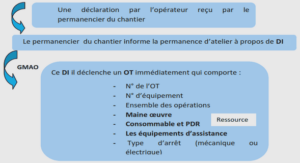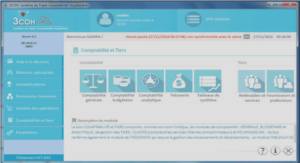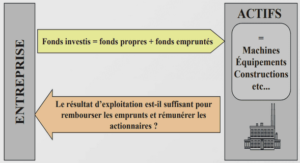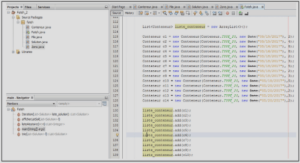THE INFLUENCE OF LIBERAL PHILOSOPHIES UPON BRITISH INSTITUTIONS
INTRODUCTION
Liberalism is a political philosophy which protects individual freedom. It claims at the limitation of the monarch’s power and the development of elected representation of the people. Liberalism emphasizes individual right and equality of opportunity. The world English Dictionary defines liberalism as: a political or social philosophy advocating the freedom of individual, parliamentary systems of governments, non violent modification of political, social, or economic institutions to assure unrestricted development in all spheres of human endeavour, and govern mental guarantees of individual rights and civil liberties. 1 In fact, the ideology of liberalism can be traced back to the Magna Carta, a political document that asserted the right of individuals even above the prerogatives of monarchs. That document which dates from the 13th century especially in 1215 was followed by the Humanists that demanded the established church during the Renaissance, and the Whigs of the English glorious revolution, whose assertion of their rights to choose their king can be seen as a claim of popular sovereignty. However, movements usually regarded as truly liberal date from the Enlightenment, in particular the Whig party in Britain, the philosophers in France, and the movement towards self-government in colonial America. So, there are different groups of liberals with different beliefs aside from this crucial boarder of liberalism, but today most liberals also agree that the freedom of speech, freedom of religion, free elections, democracy, and free trade are also essential. Within the large group of liberals, there are different ideologies such as classical liberalism, and new liberalism also called social liberalism. Liberalism has occupied an important place in the moderate varieties of political ideologies for well over two centuries. Although its dimensions differ from one society to another where it is allowed to go on, there do exist core elements which can be well-known, analysed and understood. At the very beginning, let us say that common speech often blunders and violates the reality of liberalism. Calling someone a « bleeding heart liberal » is worse than an insult; it is not important. Describing one public policy or another as « liberal » 1 Dictionary.Com, “Liberalism,” http://www.dictionary.reference.com/brouse/liberalism. Accessed September 19, 2012. 2 sheds precious light on the nature of governmental activities. The first lights of liberalism may be discovered in the open political role being sought by large numbers of individuals, and more considerably careful groups of people with identifiable common interests. In the latter part of the 18th Century great forces were at work undermining the existing political system in Europe. However, British people had been experiencing a gradual expansion of the rights of ordinary citizens as well as the landed gentry were against the kings. In France, the forces were largely held in check until the Revolution of 1789. Unlike the French, English people had no central instrument of oppression such as a centrally controlled army ready to execute the command of the monarch. British liberalism sought not to overthrow the Monarchy but to reign in its powers by expanding the role of the representatives of the people. The liberal philosophers exercised profound influence on political beliefs. Indeed, it was John Locke (1632-1704) who best represented the principles of Liberalism in the British tradition. His Two Treatises of Government (1689) constitutes a most important statement on the liberal political philosophy that has so much influenced politics in succeeding centuries. Liberal philosophy symbolises an extensive intellectual belief that has studied some of the most important and controversial principles of the modern world. Government exists to serve the people it governs. Its power is limited by concepts of natural rights of individual and moral or natural law. Among these natural rights was the concept of the right to acquire property. Life, liberty and estate belong to individuals quite apart from any grant from society or its instrument Government. The basic duty of government is to protect the common good and private rights which are seen to be inextricably related if not to the same thing. Individuals agree to limits on their behaviour by granting to government certain limited powers but only if the government rules on behalf of the common good and in the protection of private rights. For reasons of convenience and mutual benefit people enter into an agreement whereby they willingly surrender some of their freedom of action and in return gain security and stability in their daily lives. In Great Britain, we have an influence of liberal principles upon institutions given that the establishment of a constitutional monarchy has allowed a parliamentary regime which sustains liberty, plurality of ideals and openness. English liberalism has been strengthened through its restrictions of a certain number of institutions among which the monarch, the government…. All of them were born and reached their climax in Great-Britain before being exported towards other nations. These institutions play a very important role in British permanent quest for a better social consideration and for the improvement of aspects that lead 3 both British social and economic policy. Besides, liberalism through its application by English political figures happens to impact greatly the law of the governmental institutions. Then, many reforms were carried out by liberals in order to improve policies. Hence, to analyze the influence of liberal philosophy on the development of liberalism within Britain’s institutions, we must make a distinction between different variants of liberalism. It may be suggested that liberalism’s defence of individual liberties and their acceptance of important aspects of Thatcherism’s economic legacy may be connected to classical and neoliberal ideological principles while other economic and social policies have been influenced by the principles of social liberalism. To better develop the general issue of our work, we are going to accentuate our argumentation on a frame composed of three chapters. In the first chapter, we will analyse British Political Institutions. In the second chapter, we will try and show the impact of liberal principles upon British institutions. In the last chapter, the emphasis will be laid on the social and political influence of liberal philosophies.
BRITISH POLITICAL INSTITUTIONS
The political traditions and institutions that have been in place for years guide Britain’s stable democratic regime; the monarch rules as the head of state but the Prime Minister and his cabinet establish rule. The system is parliamentary; the Prime Minister and cabinet ministers are actually members of the legislature.
A CONSTITUTIONAL MONARCHY
British Monarchy, that most ancient and noble of institutions, is an excellent subject which needs to be studied. Britain is described as a Constitutional monarchy. This came about, first by The Bill of Rights of 1689 that established the line of succession for Mary the Second’s heirs. The Act of Settlement in 1701 ensured that only a protestant could reign in Britain, and it therefore underpinned the Bill of Rights. Even to this day, no Roman Catholic may hold power, nor any person married to a Roman Catholic. Constitutional Monarchy simply means that a king or queen is the Head of State, but that he or she may not in any way enact or interfere with the legislation of the country; this is the responsibility of the elected government. He or she rules according to the constitution. Party politics are held separate from the duties of the Head of State. It is an excellent system, since the reigning monarch is in no position to nominate advisors as he or she sees fit; all must be duly elected officials. He or she is unable to vote or stand election. The United Kingdom is a parliamentary monarchy. There is no written instrument for Constitutional Monarchy. The relationships between the crown, the representatives and the people are governed by a series of statutory rules, traditions and conventions whereby the monarch has gradually come to have an essentially symbolic function as head of state of the United Kingdom and of the British overseas territories. The powers of the monarchy, known as the Royal Prerogative, are however still extensive, but most of them are not exercised by the monarch personally, but by ministers acting on his or her behalf. All decision proposals of the ministers need the consent of the monarch as well as the House of Lord and the House of Commons in order to become law. Almost all of the Majesty constitutional powers are exercised on the advice of the Government. Although the monarch role is limited to non partisan functions; in the 19th century Walter Bagehot identified the monarch as the “dignified part rather than the efficient 6 part”2 of government, he or she has a close relationship with the Prime Minister, retaining the right to appoint and meet him in a regular basis. He or her ability to pass legislation resides with an elected Parliament. In fact, all monarchs are head of the Privy Council. This is the most ancient form of assembly, going back as it does to the Norman kings, when they would meet their advisers in private. The monarch’s duties include opening each new session of parliament, by delivering the Crown speech actually written by the Prime Minister. He or she approves orders and proclamation through the Privy Council. This precise show very well that the monarch achieves almost all his or her formal roles under the Prime Minister’s guidance: he/she “reigns but does not rule.” 3 In addition to playing a formal role in the United Kingdom parliament based in London, the sovereign has formal roles with relation to the devolved assemblies of Scotland, Northern Ireland, and Wales. He or she does have an important ceremonial and formal role in relation to the Government of the United Kingdom. Moreover, the Monarch is Head of the armed Forces. Only he/she can declare war or peace, even though these powers cannot be exercised in the Monarch’s own initiative but only on the advice of the Prime Minister. Besides, the British monarch has the title of “supreme Governor of the Church of England.” 4 Not only the Majesty has a specific role in both the Church of England and the Church of Scotland, but he or she also recognises and supports the various other faiths practised in the United Kingdom and Commonwealth. In both England and Scotland, the established Churches are subject to the regulation of law. The Majesty still holds an important symbolic role as the figure in whose name justice is carried out, law and order are maintained. Thus, the monarch reigns but the real power is in parliament. But, he takes part in some activities. His position as head of state is respected by English people, because they are much attached to their traditions.
INTRODUCTION |





